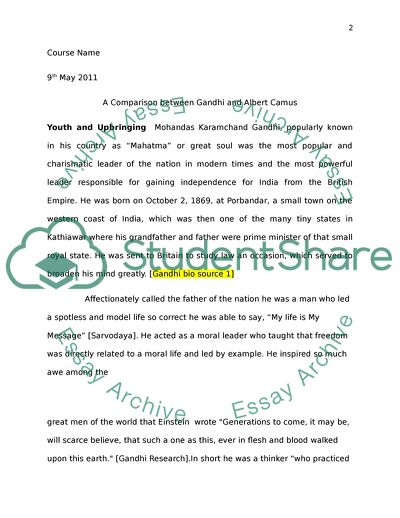Cite this document
(A Comparison between Gandhi and Albert Camus Research Paper - 1, n.d.)
A Comparison between Gandhi and Albert Camus Research Paper - 1. https://studentshare.org/culture/1752135-a-comparison-between-gandhi-and-albert-camus
A Comparison between Gandhi and Albert Camus Research Paper - 1. https://studentshare.org/culture/1752135-a-comparison-between-gandhi-and-albert-camus
(A Comparison Between Gandhi and Albert Camus Research Paper - 1)
A Comparison Between Gandhi and Albert Camus Research Paper - 1. https://studentshare.org/culture/1752135-a-comparison-between-gandhi-and-albert-camus.
A Comparison Between Gandhi and Albert Camus Research Paper - 1. https://studentshare.org/culture/1752135-a-comparison-between-gandhi-and-albert-camus.
“A Comparison Between Gandhi and Albert Camus Research Paper - 1”. https://studentshare.org/culture/1752135-a-comparison-between-gandhi-and-albert-camus.


